Watching a loved one struggle with an eating disorder can be challenging. You may even feel a sense of hopelessness. That brings us to this question – what can you do to help a loved one with an eating disorder?
Learn More About Eating Disorders
Before approaching your loved one, make sure you educate yourself about eating disorders. Your loved one may be triggered by specific words or phrases and are most likely experiencing anxiety, guilt or denial. Educating yourself can help you build confidence to discuss the topic sooner and initiate treatment earlier as well. Our Creating Change Articles are a great place to start! As we always say, early change gives your loved one the best chance of a full recovery.
Talk to Your Loved One
Encouraging treatment is the best way of helping a loved one who is struggling with an eating disorder, however, there are multiple things to consider before having this conversation. Firstly, your friend or family member must be ready to talk about the subject before approaching them.
When you talk to them for the first time, be prepared for some resistance or maybe even rejection. Some folks need time before opening up, so it is crucial that you are patient throughout this process. For many, it’s a difficult subject to discuss. Your loved one may experience pain, shame or guilt when discussing this topic. Remember – by bringing this up, you’re showing your loved one that you’re concerned about their health and are here to support them. If it is safe to do so, give them a couple of days to process their emotions and then start the conversation again.
How to Bring Up an Eating Disorder to a Loved One
It can be challenging to bring up an eating disorder to a loved one in a non-judgemental manner. Here are some ways you can bring up your concerns:
- I’ve noticed that you seem anxious around mealtimes. Are you concerned about something?
- Sometimes you don’t eat your packed lunch. Do you have enough time to have lunch at school?
- I’ve noticed you seem more tired than usual. Are you able to sleep at night?
When your loved one is ready to talk again, bring them to a quiet space that doesn’t have any distractions. Talking is a big step for your loved one, as folks living with eating disorders often struggle with denial. The fact that they’re ready to talk to you demonstrates trust and potential readiness for change. Therefore, it’s important to be respectful and supportive during this discussion. Since this topic is very sensitive, make sure to create a non-judgmental space for your loved ones to express their thoughts and feelings.
During this conversation, allow your loved one to speak freely without any interruptions. It’s important to focus the conversation on your loved one’s feelings, instead of other topics such as food and weight. Talking about food and weight may trigger your loved one.
Treatment for Eating Disorders
The best treatment for eating disorders is an individualized, holistic approach. The main goal of eating disorder treatment is to create and reinforce a positive relationship with food. The other goal is to discover methods to cope with the obstacles they may face in their lives.

Some common evidence-based treatments for eating disorder recovery may include Cognitive Behavioural Therapy (CBT), Dialectical Behavioural Therapy (DBT), Family Based Therapy (FBT), and nutritional management. Let’s explore these.
CBT and DBT
CBT and DBT are two different forms of psychotherapy that focus on changing an individual’s habits of thinking or feeling and helping to manage daily challenges independently.
Family-Based Therapy
Family-based psychotherapy incorporates other family members within the treatment process by allowing them to work together during treatment.
Nutritional Management
Nutritional management is performed by a Registered Dietitian and focuses on developing normal eating behaviours, as well as weight restoration and symptom interruption throughout the treatment process.
It’s important to note that the treatment methods listed above are not typically stand-alone treatments. It is usually suggested that most individuals receive a combination of treatment methods during their recovery process.
Helping a Loved One With an Eating Disorder
If you’re reading this, you may already suspect that your loved one is battling an eating disorder. Take some time to read up on the topic. Then, reach out to your loved one and let them know you are worried about them. You can help a loved one in many ways, including supporting them to seek treatment for recovery.
If you’re wondering how we can help support you and your loved one through eating disorder recovery, you can book a free consultation call with one of our Team Leads below.

